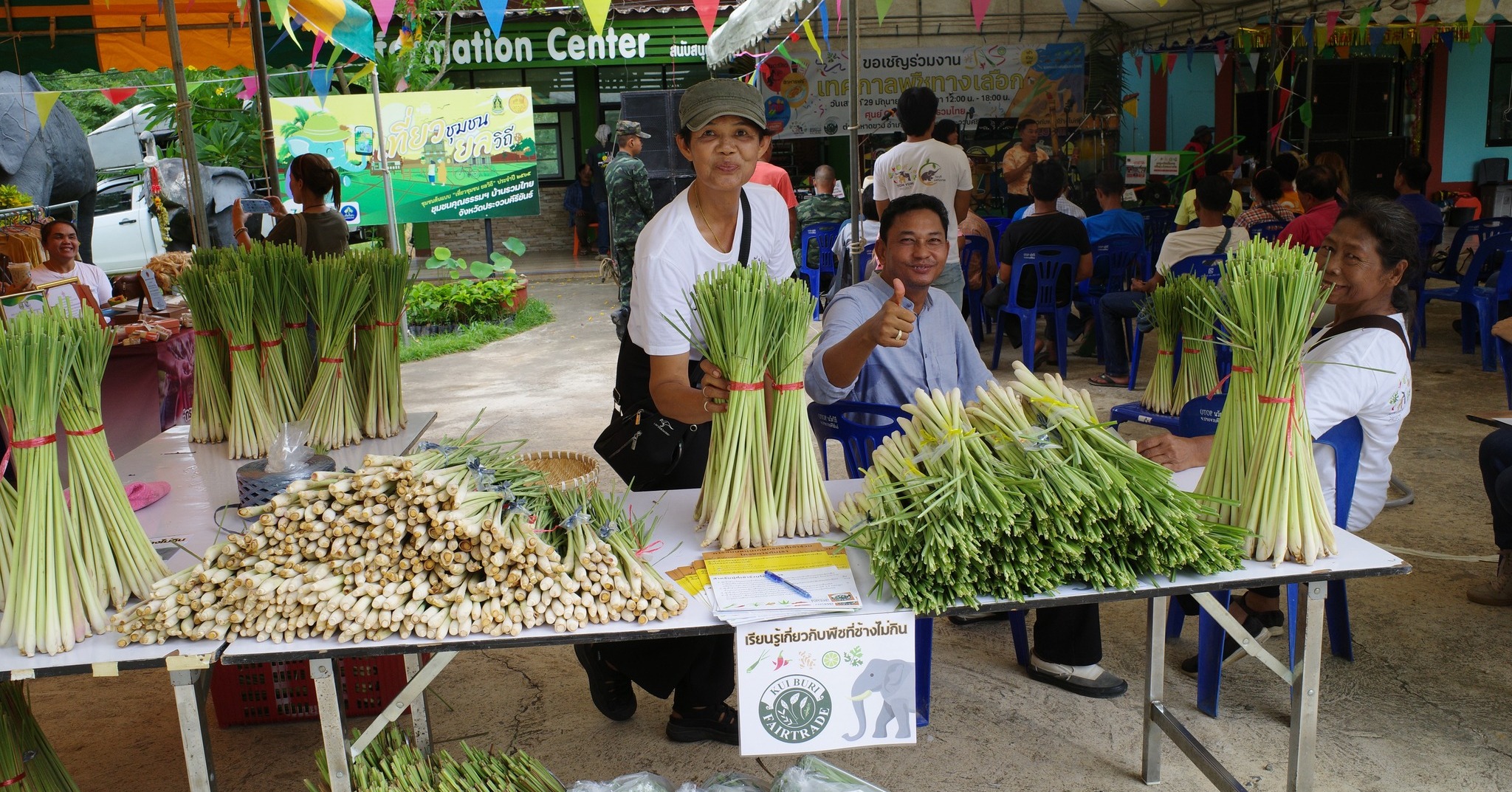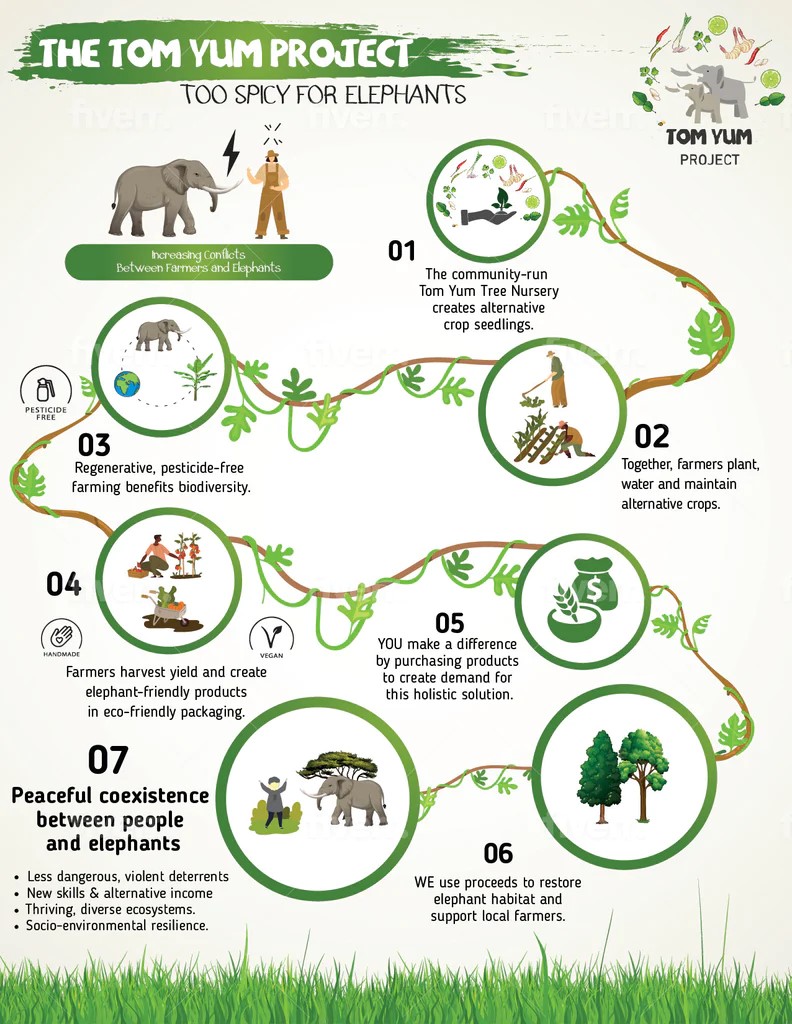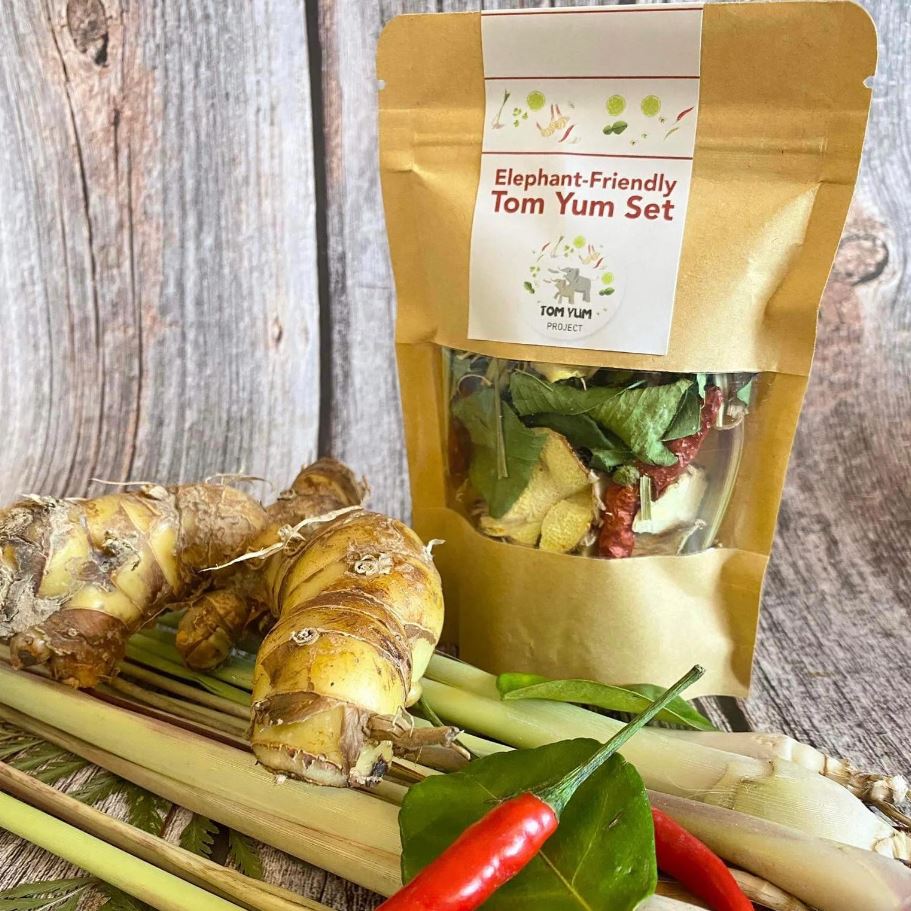The Tom Yum project, named after the famous Thai soup, is a community-based conservation initiative that addresses human-elephant conflict and promotes elephant conservation in Thailand. By supporting farmers to grow natural elephant deterrent crops found in the spicy Tom Yum soup, the project aims to protect both local livelihoods and the ecosystems on which we all depend. These elephant-deterring crops are not only easy to grow and economically viable but also help in diversifying local livelihoods and creating employment for rural communities.
A Solution Rooted in Tradition and Innovation
Natural Elephant Deterrent
Named after the iconic Thai soup, the Tom Yum Project utilizes ingredients that are unattractive to elephants. The soup’s ingredients – chilli, garlic, lemongrass, galangal, kaffir lime, onion, and coriander – are nature’s secret weapon against elephants raiding crops. By combining these ingredients with other crops that have been tested as effective elephant deterrents, such as lime, ginger, chamomile, mint, basil, turmeric, and citronella, we provide farmers with an income-generating natural solution that promotes coexistence and protects biodiversity.
Economic and Environmental Benefits
- The Tom Yum ingredients are easy to grow, familiar to Thai people, and economically viable.
- The Tom Yum Project is straightforward and does not involve advanced technology, expertise, or investment. Farmers continue their traditional way of life using their existing skills.
- This approach promotes organic farming, reduces the use of harmful chemicals, and preserves soil quality and biodiversity.
Empowering Communities for Sustainable Conservation
Holistic Approach
- Our project supports local people in leading conservation efforts, reducing violence against elephants and balancing the protection of elephants with the socio-economic interests of the communities.
- The Tom Yum project builds a network of farmers across Thailand supporting each other, contributing to social resilience to human-elephant conflict, and developing new skills in organic and permaculture farming.
- Coexistence between elephants and people is further promoted through community-based conservation activities, such as planting Conservation Events, Trees for Elephants and combining agricultural activities with the use of bees as another sustainable method to keep elephants out of farms, and safaris to observe elephants in their natural habitat.
Creating Economic Opportunities
Through the Tom Yum Project, farmers can diversify their livelihoods and create unique products such as Thai lemongrass massage oil, ginger turmeric tea, and coexistence candles. These products not only benefit the community economically but also socially, culturally, and ecologically.
Community-centric Success and Impact
Alternative Crop Trials
In the study The Role of Alternative Crop Cultivation in Promoting Human-Elephant Coexistence: A Multidisciplinary Investigation in Thailand (Owen et al., 2024), we provided insights into the potential of 10 alternative crop species: chili (Capsicum frutescens), lemongrass (Cymbopogon flexuosus), kaffir lime (Citrus hystrix), karonda (Carissa carandas), lime (Citrus aurantifolia), mulberry (Morus alba L.), citronella (Cymbopogon nardus), Cassumunar ginger (Zingiber cassumunar), galangal (Alpinia galanga), and turmeric (Curcuma longa) to reduce elephant crop damage, while offering alternative income sources and increasing farmers’ sense of safety and control.
Key successes from this initiative included:
– Resilience to the presence of elephants: All tested crop species showed a reduced likelihood of being damaged by elephants.
– Community entrepreneurship: The Tom Yum Project team developed a line of elephant-friendly products, including soaps, herbal teas, candles, and Tom Yum soup kits using alternative crops.
– Local value creation: With the installation of an essential oil distillation unit, community members gained skills in processing, branding, and small-scale manufacturing, helping to strengthen value chains and retain more economic benefits within the community.
– Livelihood diversification: When linked to value-added products, these crops offered new income streams and reduced dependence on single markets.
– Fairtrade Kui Buri: The community formed a local enterprise to coordinate cultivation and share the burdens of irrigation and plot maintenance. Hosted representatives from agro-industrial organisations and negotiated crop sales.
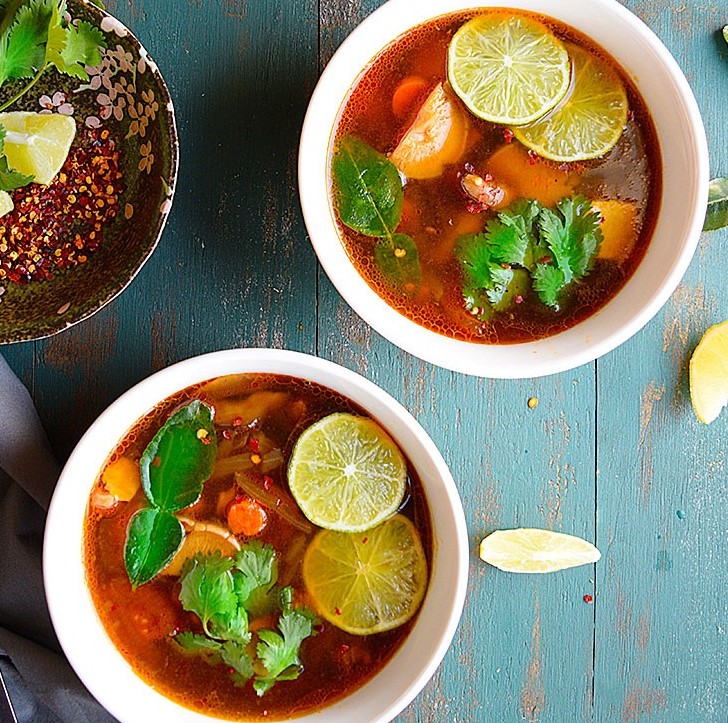
Fairtrade Certification and Alternative Crops
The project initiated a Fairtrade certification process and established the Kuiburi Fairtrade Community Enterprise, signalling a transition towards financial autonomy and sustainability. A microloan program was also implemented to empower local farmers to transition to sustainable crops, such as lemongrass and galangal, further promoting economic resilience and ecological sustainability.
Capacity Building and Product Marketing
Bring The Elephant Home organized workshops and training sessions to build capacity among farmers, empowering them to cultivate elephant-friendly products. These products are now being sold internationally through various consignment shops across Thailand, contributing to the economic well-being of the community.
Challenges and Expansion
The project encountered challenges such as drought and the risk associated with livelihood changes. However, the community’s gradual approach to transitioning to alternative crops has shown promise in mitigating these challenges. Furthermore, the project’s success has led to interest from neighbouring villages, with plans to expand the initiative to new areas.
Help Elephants and Farmers Thrive!
By supporting the Tom Yum Project, you empower farmers to grow elephant-deterring crops, reducing conflict and securing their livelihoods. Donations and proceeds of Elephant & Co go toward restoring elephant habitat and creating greater social, economic and ecological resilience in Ruam Thai village. Together, we make peaceful coexistence possible!
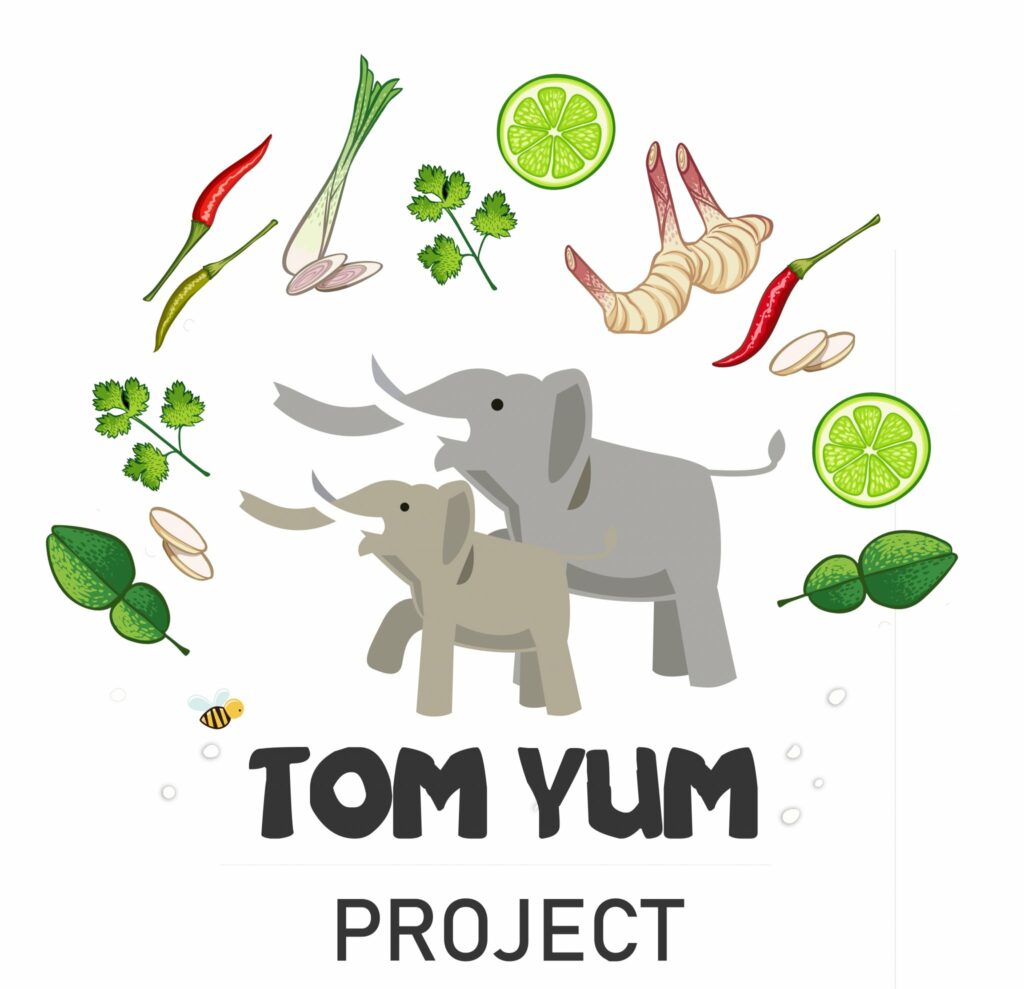
Our efforts have been significantly enhanced through collaborations with our partner, Trunks & Leaves, who spearheads a similar alternative crop project in Sri Lanka. Additionally, we receive academic support and engage in research collaborations with institutions such as the University of California San Diego, the University of Colorado Boulder, Miami University, and King Mongkut’s University of Technology Thonburi. We are very grateful for the funding and support from our main funder, the U.S. Fish & Wildlife Service, and the backing from organizations like Lush Charity Pot, Fair Trade Original, Wildlife Protection Solutions, KRS Spicy Foods, Soap Me and, importantly, our devoted donors. Thank you all for your continued support and belief in our mission.
‹ Back to previous page